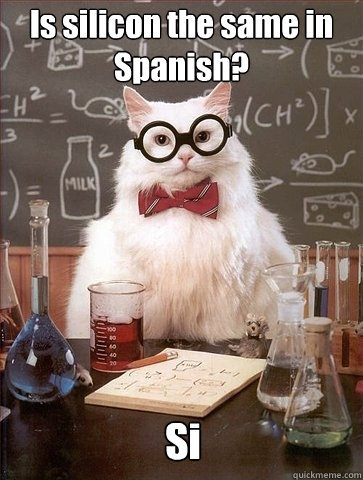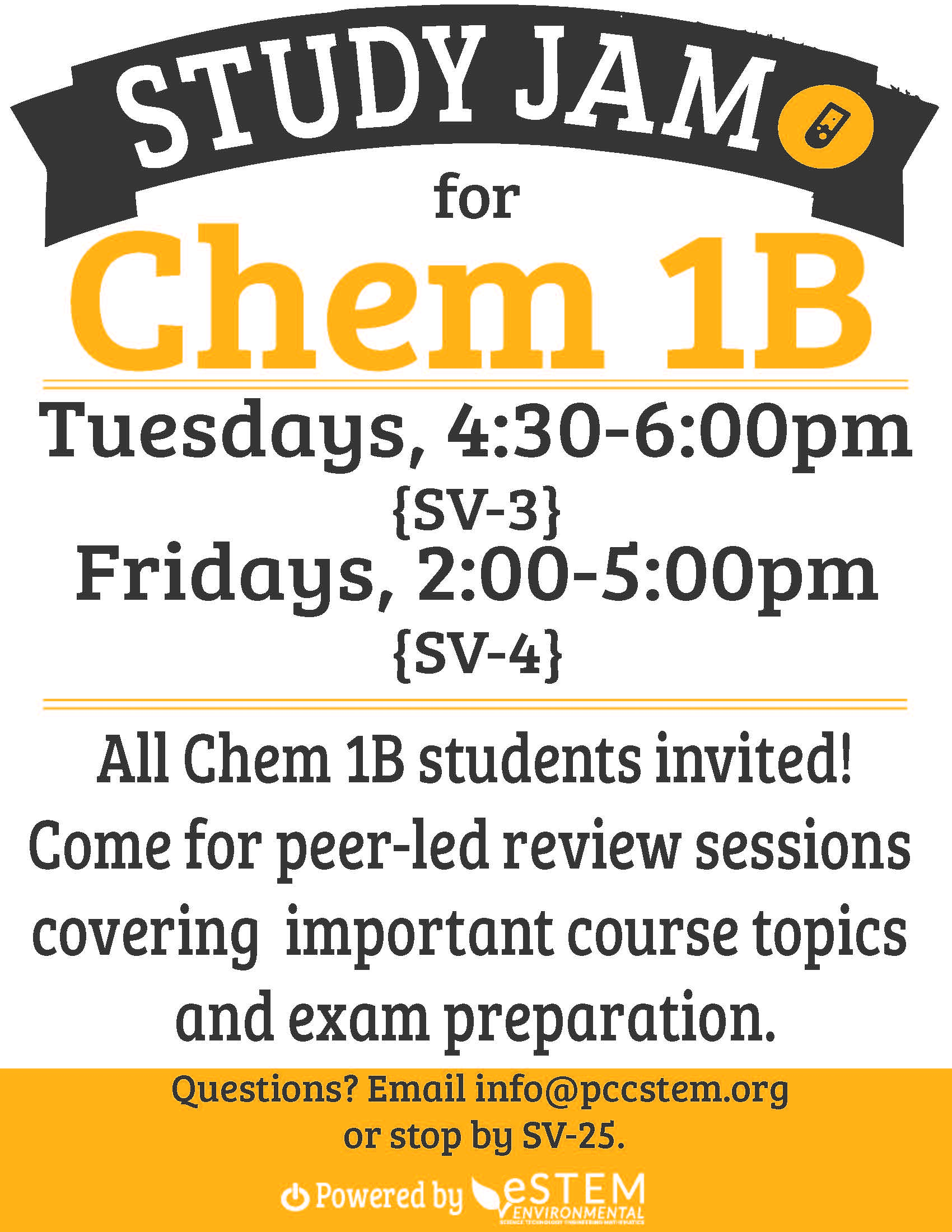I could not study well because my health was not so good and I first had to recover, especially last Tuesday, the previous day of the exam. I made a different note for reviewing what I had learned including power point slides, and I think that the method helped me memorize and understand. Most surprising thing for me was that almost all of the questions about biology required for us to explain something. Some questions were directly related to what Prof. Foster had explained, but other questions needed for us to consider what was happening and what was related to. I wish that I could have studied harder, I would have understood better these things.
Monthly Archives:: January 2013
tacklin’ THE test

Majority of my study time went to the Chemistry work sheets, which in the end was a bad choice. SInce the test was mostly on Chemistry I thought the test would be something like “memorize this formula and apply to word problems” because this was majority of how my Chem22 went. Skimming through the test, I was definitely wrong about that.
Well, in the end the test was torture and I painfully know this isn’t Chem22 anymore.
The pic. is how I felt during the test:
The First Exam Review
I think my preparation for the first exam is ok. I read the book, reviewed my notes, and finished the worksheet. But I still surprised by the exam. For the chemistry part, sometimes I can’t match certain term with its definition. It happened in both quiz and exam. I heard other students talk about the effective nuclear charge after exam. Some actual Zeff is smaller than predicted because of the shielding, the others are bigger because in further distance the shielding becomes less effective. I was surprised because I didn’t see any questions asking about this. Misunderstanding or misread the question is the biggest problem for me for right now. I am an ESL student, so language is my biggest weakness. If the question isn’t straight forward, it likes a reading comprehension or vocabulary question for me. I need to be more familiar with the terms. For the biology part, my review covered most parts. But for the ice water question, I didn’t have enough notes and it was long time ago, so I didn’t prepare well. Overall, I think I should prepare for the exam based on book and notes.
Me studying for the first exam :>

Well I didn’t look like that but the board behind the cat was what the board I used looked like (somewhat). :] The Studio was a great place to study in and my other fellow studyers–that is a word I hope–Nelson and Ashly stayed until late night. Group studying is the best :D! I feel explaining concepts and what not to each other is the best way to learn things because if my friends don’t understand what I’m saying I think our professors won’t either! The millions of boards in that room really make it an awesome place to study provided no one accidentally burns down the place. We were the last to leave that night and nothing happened so good…good.
First Exam
I am quite surprised when I had the first exam as I am not used to essay question (explanation question). I already knew that the exam was not multiple choice, but I did not expect that it would be a lot of understanding problem. Although I know the answer, I have difficulties in explaining it. For the preparation, I thought I prepared well enough; I read the textbook and tried to understand the materials. However, I realized that I did not go for the details, so I missed some materials, especially the reason why something happens. For the next exam, I have to be more critical in reading the textbook.
Exam 1

The way that I prepared for the exam was not very helpful  I was very concerned about math equations. I feel that if I would have prepared for explaining why an atom is an atom and why certain drugs kill bacteria better than others would have been a better format for studying. For the next exam I want to have a better understanding of why things are the way they are and not just memorizing a bunch of information that I don’t really know what to do with it even if I do have it memorized. It was shocking to see how much that we learned was not on the exam…
I was very concerned about math equations. I feel that if I would have prepared for explaining why an atom is an atom and why certain drugs kill bacteria better than others would have been a better format for studying. For the next exam I want to have a better understanding of why things are the way they are and not just memorizing a bunch of information that I don’t really know what to do with it even if I do have it memorized. It was shocking to see how much that we learned was not on the exam…
Well first exam finished  now I know how they maybe for the rest of the semester. Looking at the bigger picture of what we learn seems to be the key and the ability to write the answer along with expressing clearly what we have learned.
now I know how they maybe for the rest of the semester. Looking at the bigger picture of what we learn seems to be the key and the ability to write the answer along with expressing clearly what we have learned.
Picture of my puppy Samson…he pee’d all over my practice questions for chemistry exam this morning…he is really cute though!
#bio #fieldtrip to #arroyoseco

The 2013 QEM Summer Internship Program
The 2013 QEM Summer Internship Program consists of a
Science Policy Internship supported by the Office of Integrative Activities at the National Science Foundation (NSF).
The ten-week internship experience, which will take place May 28 – August 2, 2013, will include a pre-internship, four-day, orientation and professional development session; a nine-week research-focused assignment with a mentor/advisor; and a post-internship reflection session. The Program provides opportunities for graduate and undergraduate students to interact with individuals involved in policymaking positions; increase their awareness and knowledge of issues that prevent minority communities from receiving a quality education and/or quality healthcare; conduct research to become familiar with programs and strategies being implemented to address these issues; and become aware of policies and legislation that have an impact on STEM education as well as access to healthcare.
Science Policy-focused Summer Internship
Science Policy focused interns will work at the National Science Foundation under the guidance of NSF program officers and staff involved in implementing science policies and in managing STEM-focused programs. The internship is designed to increase the students’ understanding of how science policy is made as well as to further develop their potential for becoming leaders and proponents for increasing the number of women, underrepresented minorities, and persons with disabilities who pursue degrees and careers in science and engineering. Science policy interns will work at NSF on computer- and library/archive-based research projects assigned by their mentors. They also will be responsible for completing an individual development plan (IDP) and for writing midterm and final reports that provide updates on their accomplishments to date as well as their impressions of the internship experience.
To be eligible for the internship, applicants for the Science Policy-focused internship must be majors in one of the following fields: mathematics, science (life or physical sciences, computer science, behavioral sciences, or social sciences), technology, or engineering, and must have completed at least their sophomore year by the start of the internship. Graduating seniors must already have been accepted to and plan to enter graduate school in the fall to be eligible. For more information, including the stipend and additional eligibility requirements, download the 2013 QEM/NSF Science Student Internship Program application here.
- The application deadline is March 1, 2013.
Science Education-focused Summer Internship
Science Education-focused interns will work at QEM under the guidance of QEM staff. The internship is designed to provide students with an opportunity to learn more about issues pertaining to STEM education among American Indians, Alaska Natives, and Native Hawaiians, and to familiarize them with policies, programs, and strategies being used to address those issues. The science education interns will conduct computer- and library/archive-based research on topics including health issues that disproportionately affect Native Americans and STEM education at Tribal Colleges and Universities. They also will be responsible for completing an individual development plan (IDP) and for writing midterm and final reports that provide updates on their accomplishments to date as well as their impressions of the internship experience.
To be eligible for the internship, applicants for the Science Education-focused internship must be pursuing a STEM degree, be enrolled in a Tribal College or University, and have completed at least their freshman year by the start of the internship program. Students who have completed their degree program at a Tribal College or University must have been accepted into a four-year or a graduate program that will begin in the fall semester.
Cancer Research Summer Internship at CDU/UCLA
The Center to Eliminate Cancer Health Disparities at Charles Drew University (CDU) and the Jonsson Comprehensive Cancer Center at UCLA (UCLA) are hosting a great summer internship opportunity for undergraduate students and the deadline, February 1, is coming up. Please let students know about this opportunity.
The Undergraduate Cancer Research Training Program (UCRTP) is a summer internship to train undergraduates in technical and critical thinking skills in a laboratory, clinical, or community setting. The goal of the UCRTP is to ensure that each undergraduate student acquires the knowledge, skills, and attitude to become a proficient researcher in cancer research. Research topics include but are not limited to molecular, cell, developmental biology and genetics of cancer; the influence of lifestyle choices, diet, and exercise on cancer risk; and translating basic research into cancer therapeutic agents. Each student intern acquires training by working on a hypothesis-driven scientific research project, at CDU or UCLA, alongside a designated mentor during the course of 8-12 weeks. A stipend is provided to students in the program. The internship is competitive, and applications are due on February 1, 2013.
This is a great opportunity for students to gain research experience so please feel free to forward this information. The UCRTP Program flyer, application and letter of recommendation form are attached. Please see the link below for more information about the program and how students may submit an application:
http://cdrewu-dcrt.org/education_training.aspx?page=undergrad_apply
Thank you for your time, and for any efforts you take to disseminate information about UCRTP. It truly is a great opportunity for any undergraduate contemplating a career in biomedical research.
Introducing Chem 1B Study Jams!
Starting Friday Jan. 18 (tomorrow!) we will be offering weekly Chem 1B study sessions on Tuesdays and Fridays. Each week our knowledgeable peer leaders will review important/difficult Chem 1B topics as well as prepare you for exams.

Hello everyone, my name is Isis. This is my first time using…

Hello everyone, my name is Isis. This is my first time using Tumblr so I
am not too familiar on how to use this. I will start to introduce myself
by letting you all know a little bit about myself and my goals. I am a
full time mother, wife and student, an interesting fact about me is that I
recently had a baby boy (last month!). As I am still adjusting to my new
life and my studies, I am looking forward to this new method of
teaching/learning that is being offered by this “combo” course. It’s been
a while since I’ve been student like this, so I may start out a bit shaky
at first. Once I get my momentum going I’m sure I’ll be OK.
-Isis
Great start to week 2 – our students were all here at 7:15am…

Great start to week 2 - our students were all here at 7:15am prepared to give presentations on cellular diversity and how therapies, e.g. antibiotics, exploit these differences.

Recent Comments